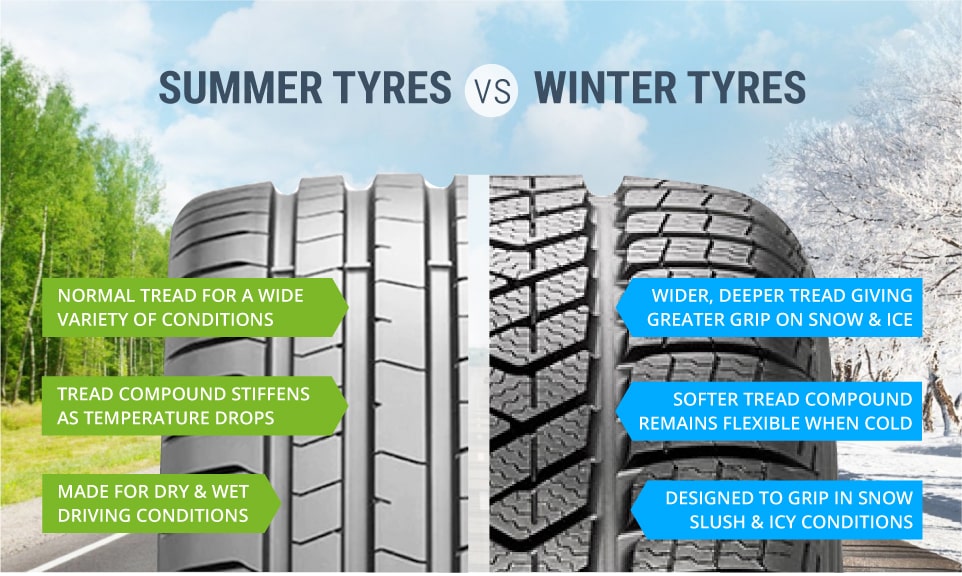There may not be a legal requirement to change tyres with the seasons in the UK, but that doesn’t mean you shouldn’t. Driving conditions can vary dramatically throughout the year, so you should be prepared whatever the weather. All your questions answered on Summer vs. Winter tyres.
Summer tyres provide all-round better performance in the warmer months, the shallower tread pattern aids precision on the roads, and the relatively hard rubber compound softens in milder temperatures providing high grip levels on both wet and dry roads. These tyres are designed to adapt to the higher temperatures without getting soft, this means they have lower friction and are more fuel efficient!

Although the harder rubber compound suits the milder temperatures as it prevents the tyres getting soft, it can harden and become brittle below +7 degrees C. This makes summer tyres dangerous to use in colder climates as the hard rubber can cause you to lose grip and greatly increase braking distance.
The higher natural rubber content in winter tyres keeps them supple and flexible at colder temperatures for better control. The softer rubber and deeper tread pattern will improve braking performance, grip, and handling. There are also thousands of tiny grooves, known as Sipes, in the tyres tread blocks which helps to disperse water and prevent aquaplaning. These Sipes bite into the snow, slush, and ice, providing greater traction on the road.
Unfortunately, the softer rubber compound will wear out quickly on dry tarmac in the summer months and will need replacing sooner.

Finally, there are all season tyres which can provide a halfway house between the summer and winter tyres. These are made from a moderate rubber compound to prevent hardening at low temperatures and aid grip. The moderate tread depths will also provide a longer life in summer, so they do not need replacing as often as winter tyres would in the warmer months.

